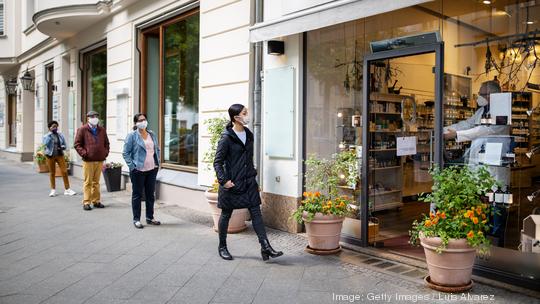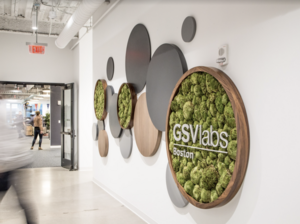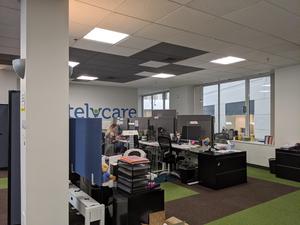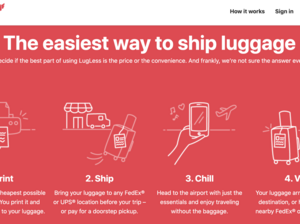
The coronavirus pandemic has brought with it another pandemic: business closures. Tens of thousands of U.S. businesses have closed permanently, and Boston is no exception. Now, the question remains of how retail spaces, which rely heavily on foot traffic, can keep sufficient revenue coming in while remaining safe.
Cognitive Retail, a Boston-based data analytic and automation software company, has developed new solutions for businesses that are beginning to reopen.
The two-year old company’s solutions include store occupancy and metering, in-store social clustering measurement and alerting store managers and associates through SMS and email notifications. Store occupancy and metering allows businesses to set a limit on how many customers are allowed in the store and automatically meter traffic in and out.
With real-time data, Cognitive Retail’s software can measure the occupancy inside stores. Through in-store social clustering measurement, the retailer can also measure the distance between people in a cluster and alert staff when social distancing is being violated.
“A cluster is where there are two or more people close by and with our automation software, we are able to measure those distances between individuals in a cluster,” said CEO Pedro Melgarejo. “If social distancing is being violated, we can alert the store management in real time. We can also tell where exactly that is happening inside the store. And based on recommendations given by the state or city in terms of social distancing, we can set up the system with those mandated thresholds.”
The Covid-19-specific solutions are less of a pivot than a target application of Cognitive Retail’s software. The startup was founded by Chandhu Nair in 2018 to bridge the gap between retailers and consumers.
“We started the company because we saw a gap in retail,” Melgarejo said. “We observed that [retailers] are able to process and understand transactional data—data they take from their databases, inventory systems or point of sales, but they didn’t know much about what was going on inside the store, especially in regard to customer behavior. We observe patterns out of video and extract insights on customer behavior inside stores and give it to the retailers.”
By analyzing customer behavior, Cognitive Retail is able to track traffic patterns and locations of consumers in stores and measure how long patrons stay in certain areas. The company also analyzes customer demographics.
Although it analyzes consumer data and behavior, Cognitive Retail does not use facial recognition software or store video, Melgarejo said.
“We can do a lot of things with computer vision, but we need to take care of the privacy of people, so when we use our technology it can be actually used for good,” said Melgarejo.
Emma Campbell is a contributing writer for BostInno.






